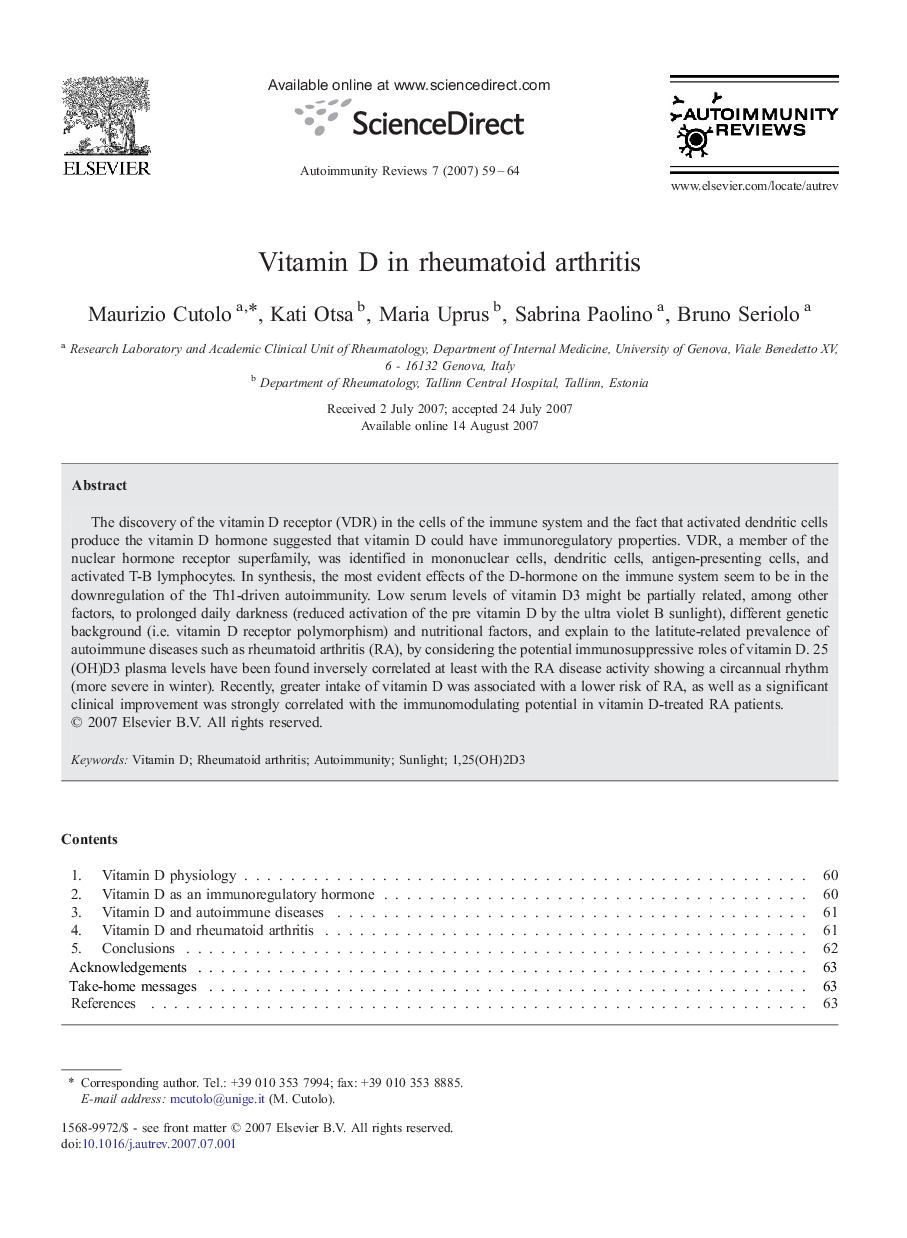| Article ID | Journal | Published Year | Pages | File Type |
|---|---|---|---|---|
| 3342477 | Autoimmunity Reviews | 2007 | 6 Pages |
The discovery of the vitamin D receptor (VDR) in the cells of the immune system and the fact that activated dendritic cells produce the vitamin D hormone suggested that vitamin D could have immunoregulatory properties. VDR, a member of the nuclear hormone receptor superfamily, was identified in mononuclear cells, dendritic cells, antigen-presenting cells, and activated T-B lymphocytes. In synthesis, the most evident effects of the D-hormone on the immune system seem to be in the downregulation of the Th1-driven autoimmunity. Low serum levels of vitamin D3 might be partially related, among other factors, to prolonged daily darkness (reduced activation of the pre vitamin D by the ultra violet B sunlight), different genetic background (i.e. vitamin D receptor polymorphism) and nutritional factors, and explain to the latitute-related prevalence of autoimmune diseases such as rheumatoid arthritis (RA), by considering the potential immunosuppressive roles of vitamin D. 25(OH)D3 plasma levels have been found inversely correlated at least with the RA disease activity showing a circannual rhythm (more severe in winter). Recently, greater intake of vitamin D was associated with a lower risk of RA, as well as a significant clinical improvement was strongly correlated with the immunomodulating potential in vitamin D-treated RA patients.
